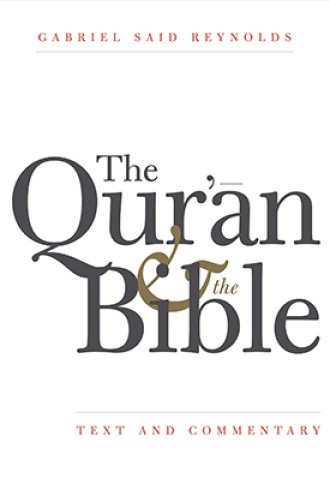A remarkable commentary on the Qur’an and the Bible
Gabriel Said Reynolds puts the two sacred texts into respectful, honest conversation.
Some scholars believe that the Qur’an’s teachings are based on Judeo-Christian subtext (as do many Christian theologians); others believe the Qur’an to be the last link in the chain of the Abrahamic scriptures (as per Islamic understanding). Both groups will benefit from this nonpolemical study, which comments on the entire text of the Qur’an (as translated by Ali Quli Qara’i) in relationship to the Bible and ancient literature related to the Bible.
Gabriel Reynolds, a Catholic who teaches Islamic studies and theology at the University of Notre Dame, focuses mostly on the Qur’an in its historical context rather than interpretations or traditions that emerged in the medieval period. While most scholars put the relationship of the Qur’an with the Bible aside in their exegetical commentaries, this project is centered on the Qur’an’s relationship with biblical literature. Reynolds points out that about one-fourth of the Qur’an addresses Jewish and Christian scriptures, characters, and stories. He frequently refers to the “Qur’an’s conversation with the Bible” as a critical resource for understanding the Qur’anic text. What makes this book exceptional is that it is arranged in the same order as the Arabic Qur’an (the version that Muslims consider the Qur’an) while drawing attention to comparable themes and stories in Judeo-Christian literature.
Reynolds frequently makes use of extrabiblical literature, including Jewish and Christian texts and homilies that followed the Old and the New Testaments but preceded the Qur’an. For example, he puts the Talmud in conversation with Qur’an 2:80 (“And they say, ‘The Fire shall not touch us except for a number of days’”) and 3:24 (“That is because they say, ‘the Fire shall not touch us except for numbered days’”). In the section from Talmud that Reynolds cites here, b. Rosh Hoshanah 16b–17a, Beth Shammai identifies three levels of suffering on the Day of Judgment. The thoroughly righteous will not suffer at all, the thoroughly wicked will suffer infinitely, and “the intermediate will go down to Gehinnom and squeal and rise again,” having experienced the refiner’s fire described in Zechariah 13:9. Readers familiar with the Qur’an may recall at this point that references to “three groups” are found elsewhere in the Qur’an. Similarly, in the commentary on Qur’an 4:43, which addresses refraining from prayer when drunk, ablution with water (Wudhu), and ablution with the earth when water is not available (Tayammum), Reynolds identifies parallel traditions in the Talmud.






